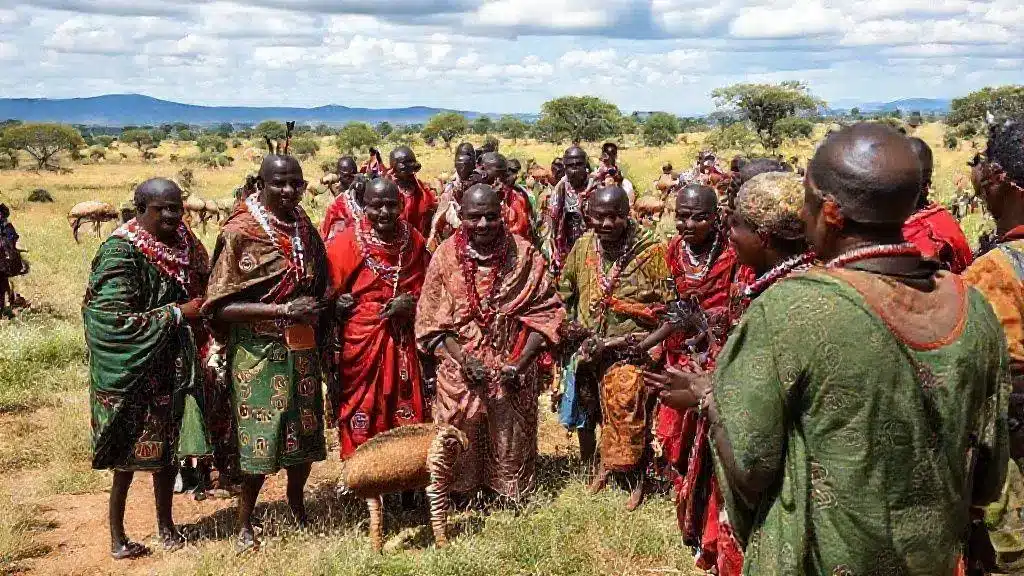Ethical travel initiatives supporting indigenous communities

Ethical travel initiatives supporting indigenous communities empower these cultures by promoting sustainable tourism practices, providing economic opportunities, and fostering respect and understanding between travelers and local populations.
Ethical travel initiatives supporting indigenous communities play a crucial role in preserving cultures and environments. Have you ever considered how your travel choices impact local communities? Let’s explore the importance of supporting these initiatives.
Understanding ethical travel
Understanding ethical travel is essential for today’s conscious travelers. It refers to how we can explore new destinations while respecting local cultures, environments, and communities. Instead of simply visiting places for leisure, ethical travel encourages us to engage with and support the areas we visit.
What Does Ethical Travel Mean?
At its core, ethical travel revolves around making choices that positively impact the places we visit. This includes selecting sustainable accommodations, supporting local businesses, and respecting cultural norms and practices. By doing this, we can ensure that our travels contribute to the well-being of indigenous communities rather than detract from their culture and environment.
Key Principles of Ethical Travel
- Respect local customs and traditions.
- Support local economies by buying local goods.
- Choose eco-friendly accommodations.
- Engage with initiatives that protect local wildlife and habitats.
Traveling ethically not only benefits the locals, but it also enriches our own experiences. By learning about different communities, we can gain a deeper understanding of diverse cultures and lifestyles. This connection can transform our travels from mere sightseeing to meaningful interactions.
For instance, when visiting indigenous territories, consider how your presence affects their way of life. Engage with community members, listen to their stories, and participate in traditional activities. This fosters a greater appreciation for their heritage while also providing economic support. Ethical travelers often find that these immersive experiences lead to lasting memories.
Additionally, ethical travel includes being mindful of our environmental impact. Opt for eco-friendly tours and transportation methods that help reduce carbon footprints. Participate in conservation efforts that help preserve the natural beauty of the places we explore.
In conclusion, understanding ethical travel encourages us to be more responsible travelers. By making informed choices, we can help support indigenous communities and create experiences that honor their cultures and environments.
Benefits for indigenous communities

The benefits for indigenous communities from ethical travel initiatives are profound. Engaging with tourists can create essential economic opportunities, allowing these communities to maintain their cultural integrity while improving their standard of living. When travelers choose to support local artisans and guides, it provides a vital source of income that can support families and local projects.
Economic Growth
One major benefit of ethical travel is increased economic growth for indigenous communities. Tourism can generate funds that are directly reinvested into the local economy. This can lead to the development of schools, healthcare facilities, and other community services.
- Improvement in community infrastructure.
- Access to education and training programs.
- Development of sustainable businesses.
- Investment in local cultural preservation.
Furthermore, ethical tourism encourages the preservation of cultural heritage. When communities see that their traditions and lifestyles attract visitors, they are often motivated to share and protect these practices. This creates a sense of pride and ownership among community members.
Empowerment and Self-Determination
Another important aspect is the empowerment of indigenous voices. When they participate in tourism, they have a chance to tell their own stories. This can challenge stereotypes and provide a more accurate representation of their cultures. Ethical travel fosters respect and understanding between visitors and locals, breaking down barriers and creating bonds.
As communities engage more with travelers, they also gain greater control over their resources. This means they can set rules about tourism practices, ensuring that they align with their values and needs. Empowered communities are better equipped to advocate for their rights and preserve their environments.
In summary, the benefits for indigenous communities from ethical travel initiatives are significant. They can lead to economic growth, cultural preservation, and empowerment. By supporting these efforts, travelers contribute positively to the lives of indigenous people while enriching their own travel experiences.
How to choose ethical travel options
Choosing ethical travel options can profoundly impact the communities we visit. It involves making mindful decisions that benefit both the travelers and the locals. Understanding how to select these options can enhance your travel experience while ensuring you support the places you explore.
Research Your Destination
Before you travel, take time to research the culture, customs, and tourism practices of your destination. Understanding the local context helps you choose options that align with their values. Look for travel companies that promote sustainability and respect for local traditions.
- Check for certifications from recognized sustainable tourism organizations.
- Read reviews from other travelers about local businesses.
- Seek out companies that give back to the community.
- Learn about the local economy to understand where your money goes.
Additionally, consider the type of accommodation you select. When you book a place to stay, opt for hotels or hostels that prioritize eco-friendliness. Supporting locally owned hostels and bed and breakfasts can ensure that the money goes directly to the community.
Choose Local and Sustainable Activities
Participate in local activities that support indigenous communities. Look for guided tours led by local experts who can provide deeper insights into their culture. These tours often promote authentic experiences, avoiding the commercialization seen in large tourist operations.
Engaging in activities like traditional cooking classes, art workshops, or nature hikes can provide enriching experiences. Not only do these choices educate you, but they also allow you to contribute to the local economy.
Remember to be respectful during your travels. Always ask for permission before taking photos of people or sacred sites. This practice shows appreciation for the local culture and builds a positive relationship between travelers and the community.
In summary, selecting ethical travel options requires awareness and consideration. By doing your research, choosing local activities, and respecting cultural practices, you can create a more meaningful impact on the places you visit.
Success stories of ethical travel initiatives

Success stories of ethical travel initiatives illustrate the impact that responsible tourism can have on local communities and ecosystems. These initiatives empower indigenous groups, foster economic growth, and promote cultural preservation, showing how ethical travel can greatly benefit everyone involved.
Case Study: The Maasai Mara
In Kenya, the Maasai people have embraced ethical tourism with great success. By opening their lands to responsible travelers, they showcase their rich culture while protecting their environment. The Maasai Mara National Reserve allows visitors to experience wildlife in natural habitats without disrupting the ecosystem.
- Community-run lodges provide funds for local schools and health clinics.
- Tourists engage in traditional Maasai ceremonies, creating authentic connections.
- Wildlife conservation efforts are supported through sustainable tourism.
This model not only enhances the livelihoods of the Maasai but also raises awareness about conservation efforts among tourists.
Success in Peru: The Sacred Valley
Another inspiring example comes from Peru’s Sacred Valley, where local communities have developed tourism programs that celebrate their heritage. The ethical travel initiative here focuses on cultural immersion, allowing travelers to participate in traditional crafts, cooking classes, and guided tours by local residents.
These activities help preserve ancient traditions while providing steady income for families. By emphasizing local knowledge and skills, these initiatives strengthen community ties and promote environmental sustainability.
Both the Maasai and Sacred Valley stories highlight how ethical tourism is not just a trend but a viable strategy for long-term community development. As travelers become more conscious of their choices, they can make a real difference in the lives of indigenous peoples.
Conclusion: Ethical travel initiatives are vital for supporting indigenous communities and promoting sustainable tourism. By making informed choices, travelers can help preserve cultures, protect environments, and empower local economies. These efforts enhance the travel experience while creating lasting bonds between visitors and the communities they engage with. As we explore the world, let’s remember that each decision we make can have a positive impact on people and places.
FAQ – Questions about ethical travel initiatives supporting indigenous communities
What are ethical travel initiatives?
Ethical travel initiatives aim to promote responsible tourism that respects local cultures, supports communities, and protects the environment.
How do these initiatives benefit indigenous communities?
They provide economic opportunities, cultural preservation, and empower local voices, allowing communities to thrive while sharing their heritage.
What can travelers do to support ethical travel?
Travelers can choose local accommodations, engage in local activities, and be respectful of customs to support ethical tourism.
Why is it important to choose ethical travel options?
Choosing ethical travel options fosters positive relationships between tourists and local communities, ensuring that tourism benefits everyone involved.





